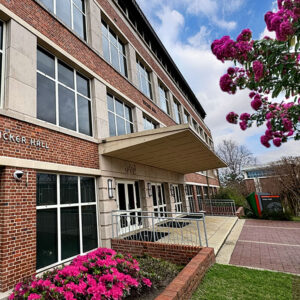News | March 7th, 2024
Who Is The EC?
By: Micah Barkley | Editorial

The Electoral Commission (EC), formerly known as the Electoral Panel, was established by Congress to resolve the disputed presidential election of 1876 between Republican Rutherford B. Hayes and Democrat Samuel J. Tilden.
In the 21st century, many universities conduct elections to fill student-led positions in the royal court or student government, which plants the need for an EC in most colleges and universities.
The recent controversies concerning the Miss FAMU election have questioned the role of EC at FAMU.
Journey Magazine had the opportunity to speak with a Senior Associate Justice for FAMU’s Supreme Court to give students and staff insight into the pivotal role of EC.
All statements are made by Jordyn Bew, a third-year criminal justice student with a minor in pre-law at Florida A&M University(FAMU). She serves as Senior Associate Justice for FAMU’s Supreme Court. Her statements do not represent the ideas of the Court or the Student Government Association.
What is the role of EC at FAMU, and the history behind how it was started?
“The electoral commission holds power and authority as outlined in Chapter 601.3 of the student body statutes. Their responsibilities include verifying candidate qualifications, evaluating points, scrutinizing applications and campaign materials, organizing a pageant, and overseeing the vote-counting process, among other duties. Their pivotal role ensures transparency, impartiality, and the overall integrity of the student election process. Unfortunately, I lack information on its origins at FAMU.”
What is the role of the Supreme Court and Student Government Association in the FAMU student election process?
“The Supreme Court serves as the highest judicial body within the Student Government Association. All infractions of rules, disciplinary problems, and issues amounting to constitutional controversies shall be presented to the Supreme Court for adjudication. We render decisions on a few things through the election process. We first approve or vote to amend a list of rules and procedures each election. Any contest/appeal of a campaign, electoral commission decision, or election by a candidate is submitted to our Solicitor General, who then informs the Chief Justice. We read the initial appeal and then ask the candidate and EC to send evidence so we can render a decision. We have the power to uphold, overturn, or change the Electoral Commission’s decisions. We have the power to call for a new election if we find the EC in contempt of violating the election code and the ability to withhold their pay. We can also determine the type of violation a candidate made; based on our decision, a candidate can be disqualified, and we will call for a special election or simply assess 1 to 30 points. That is the gist of what the Supreme Court does during elections. I won’t go into the trial after the fact.”
How has this election, in particular, made your job difficult?
“To be honest, we had a large number of appeals this election season, but it didn’t necessarily make our job difficult; we just had to make sure we were giving everybody a fair amount of time and attention for their specific appeals and rendering decisions per our interpretation of the documents in a fair and unbiased manner.”






